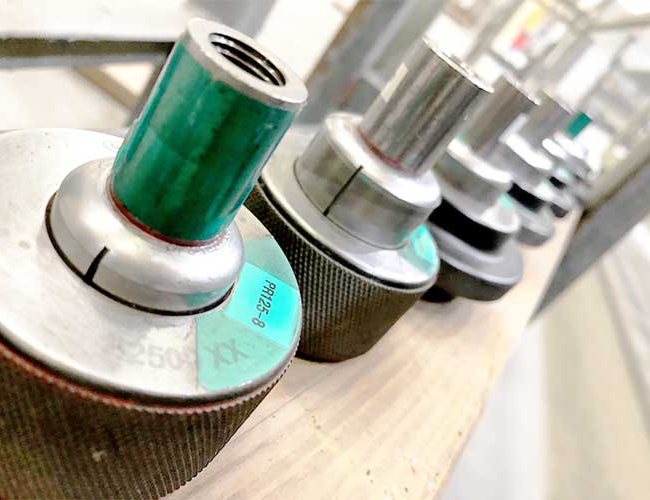
In the industrial sector, where metal parts, pipes, and equipment are critical to the flow of gases and fluids, corrosion represents a formidable challenge. This relentless issue can lead to equipment failures, unplanned downtime, and expensive repairs, all of which erode profitability. To maintain operational efficiency and protect profit margins, it's essential to understand the impact of chemical and environmental corrosion on metal components and invest in effective protective measures.
The Impact of Corrosion on Industrial Equipment
Corrosion is the process by which metals deteriorate due to reactions with their surroundings. In industrial settings, this process is often accelerated by exposure to harsh chemicals, moisture, extreme temperatures, and other environmental factors. Without proper protection, metal parts and equipment can suffer from reduced strength, increased wear and tear, and premature failure.
The economic impact of corrosion is significant. According to the National Association of Corrosion Engineers (NACE), corrosion costs industries worldwide more than $2.5 trillion annually. This figure includes direct expenses such as maintenance and repairs and indirect costs like lost productivity and downtime. For businesses that rely on heavy machinery and infrastructure, the financial drain from corrosion can severely affect the bottom line.
Applications Vulnerable to Corrosion
Certain industrial applications are particularly prone to corrosion due to their exposure to harsh weather conditions and chemical environments. Here are seven key scenarios where corrosion is a major concern:
- Oil and Gas Pipelines: Pipelines are exposed to moisture, chemicals, and varying temperatures, making them susceptible to both internal and external corrosion, which can lead to leaks and environmental hazards.
- Marine Equipment: The corrosive nature of saltwater accelerates the degradation of ships, offshore platforms, and other marine structures.
- Chemical Processing Plants: Equipment in these facilities often handles corrosive substances, resulting in chemical reactions that weaken metal components over time.
- Mining Operations: The abrasive and corrosive conditions in mining environments, combined with moisture and chemicals, cause rapid wear and tear on mining equipment.
- Power Generation Facilities: Boilers, turbines, and cooling systems in power plants are exposed to high temperatures, humidity, and corrosive chemicals, increasing their susceptibility to corrosion.
- Construction Equipment: Heavy machinery used in construction faces exposure to rain, snow, and mud, which can lead to rust and corrosion.
- Agricultural Machinery: Fertilizers, pesticides, and outdoor conditions contribute to the corrosion of metal parts in tractors, plows, and other farming equipment.
The Role of Metal Finishing Treatments
To address the damaging effects of corrosion, many industries employ metal finishing treatments that offer enhanced protection. Treatments like hard chrome plating, electroless nickel coating, and phosphate-based coatings are effective in extending the lifespan of metal parts under demanding conditions.
-
Hard Chrome Plating: This treatment applies a layer of chromium to metal parts, creating a durable, corrosion-resistant surface. It's particularly useful for components exposed to abrasive conditions and is a popular option for those seeking hard chrome plating near Dallas TX.
-
Electroless Nickel Coating: Unlike traditional nickel plating, which requires an electric current, electroless nickel coating is applied chemically, ensuring an even layer across complex surfaces. This treatment offers excellent corrosion resistance, making it ideal for parts exposed to chemicals and moisture. For industries with high corrosion protection needs, a plating service in Dallas is often recommended for electroless nickel coating.
-
Phosphate-Based Coating: Phosphate coatings are used either as a pre-treatment for painting or as a standalone anti corrosion coating service. This treatment improves the adhesion of subsequent coatings and provides protection against rust and corrosion, making it suitable for parts in outdoor or high-humidity environments.
These treatments not only combat corrosion but also enhance the durability and performance of metal parts, reducing maintenance and replacement needs. For industries requiring metal plating for steel in TX, these treatments are crucial for prolonging the lifespan of essential components.
In industrial settings where the integrity of metal parts and equipment is vital, corrosion remains a significant challenge. By understanding the effects of chemical and environmental factors on metal longevity and investing in protective treatments, businesses can prevent corrosion from impacting their profitability. Whether through hard chrome plating, electroless nickel coating, or phosphate-based coatings, effective anti-corrosion measures can substantially extend the life of metal components, ensuring they perform reliably under even the harshest conditions.
Protecting your investment in industrial equipment goes beyond preserving metal—it's about safeguarding your bottom line.
Comments on “Preventing Corrosion From Eating Away at Profits”